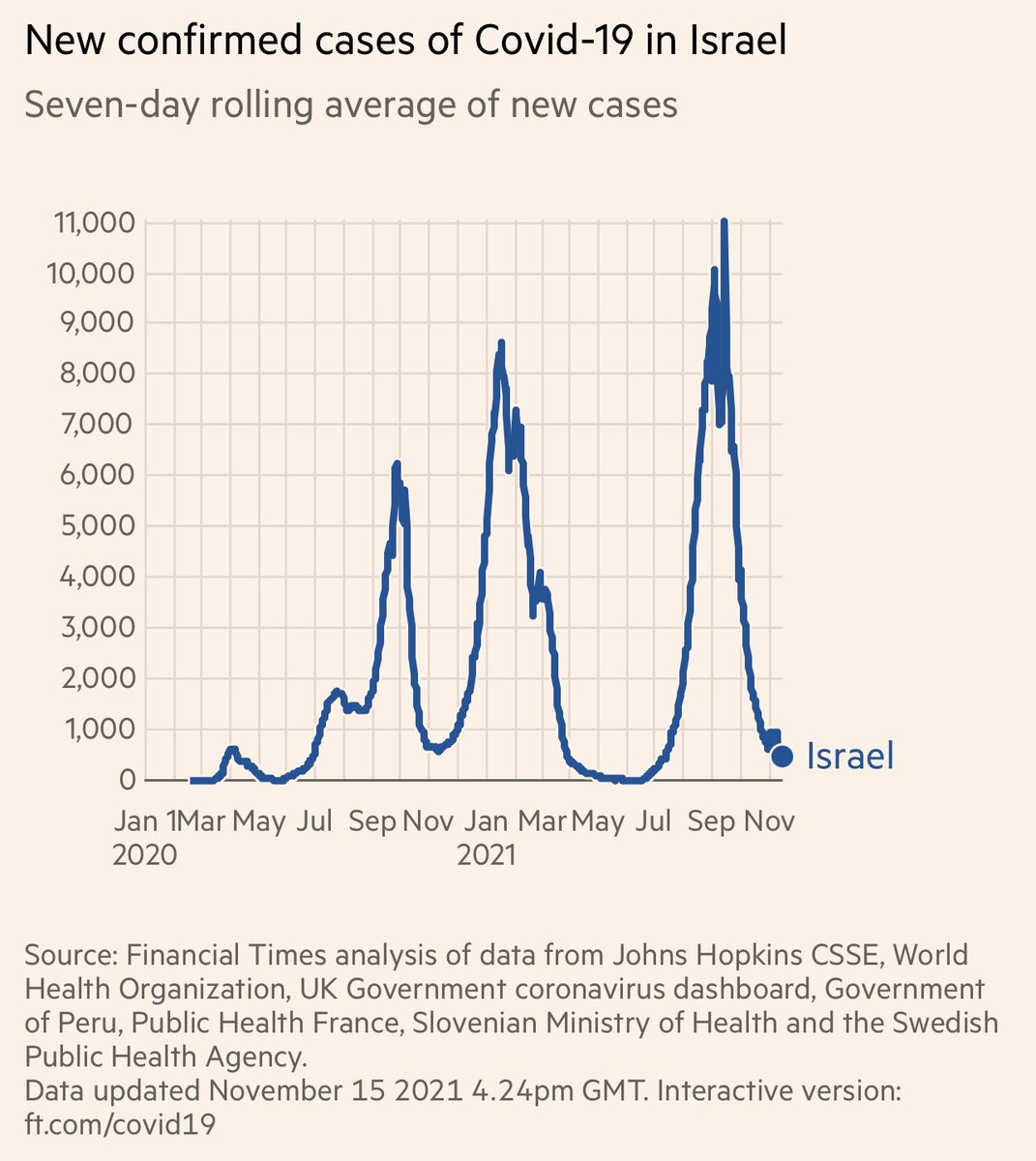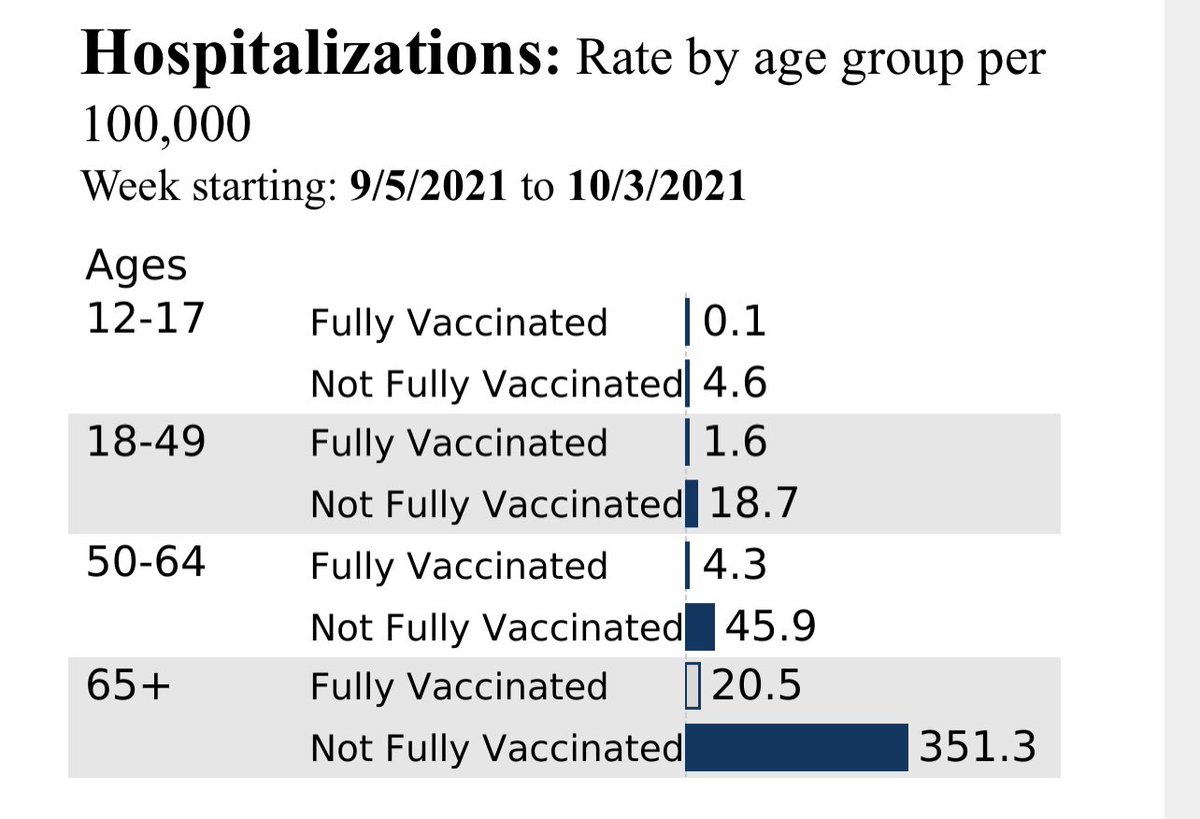
Israel suspected that vaccine efficacy may be waning in early July. Made a decision to offer a booster dose for high risk people July 30. And to all adults August 29. Early call.
Data mow support that call. Let's look at boosters.
1/

Data mow support that call. Let's look at boosters.
1/


Their early decision gave early data on boosters. The first data came within days.
2/
2/
https://twitter.com/vincentrk/status/1428811776406265856
A follow up large real world study confirmed that a booster dose dramatically reduces risk of symptomatic infection.
3/
3/
https://twitter.com/VincentRK/status/1438251540519739393
The complicating factor is vaccine equity and fairness, and the rise of mutant variants in unvaccinated parts of the world. But on the specific scientific question on whether a booster dose is effective, the evidence is very strong that it is.
6/
6/
https://twitter.com/VincentRK/status/1458186199533867018
Which brings us to some interesting recurrent issues. From masks to vaccines various places have made early judgment calls that others later adopted. Many of us have also had different thresholds.
Some of us called for a booster early on for vulnerable populations.
7/
Some of us called for a booster early on for vulnerable populations.
7/
https://twitter.com/vincentrk/status/1425536684763013127
Recognizing that even with equity concerns we had doses expiring and going waste. So giving them to high risk patients could be considered.
8/
8/
https://twitter.com/drericding/status/1422173548701966343
We see these type of early judgment calls ahead of the CDC now by various places: California, Colorado, New Mexico, New York City.
I don't think we should second guess these judgment calls made in the public interest. Data support them.
9/
google.com/amp/s/www.nyti…
I don't think we should second guess these judgment calls made in the public interest. Data support them.
9/
google.com/amp/s/www.nyti…
The second issue is that it is fascinating to see how data evolves and how decisions are made. Some of the early data that a booster dose may be effective came quite early. In June.
10/
10/
https://twitter.com/vincentrk/status/1409504926812753922
Data that it can help high risk populations came from a study in organ transplant patients.
11/
11/
https://twitter.com/VincentRK/status/1425820149500858368
Most docs seemed to agree that a booster would help in early August. Well before the CDC decision for high risk patients that came Sept 24th.
12/
12/
https://twitter.com/VincentRK/status/1422178266362826760
In face CDC experts thought the same even in July, but were reluctant to act.
13/
13/
https://twitter.com/VincentRK/status/1418345224280084481
Its good to recognize just as there are risks in an early call, there are also risks in waiting for perfect data. These are also not easy judgment calls. There is a lot of analysis of data, pros and cons. For leaders, it's good to have deep thinkers and experts on the team.
*now
Sorry about the typo!
Sorry about the typo!
*fact
Some questions on why the first 2 doses were not enough.
Some thoughts. Durability of immunity is dependent on many factors:
1) antigen dose
2) the way in which the antigen is presented to the immune system
3) host factors: age, comorbidities
4) interval between exposures
Some thoughts. Durability of immunity is dependent on many factors:
1) antigen dose
2) the way in which the antigen is presented to the immune system
3) host factors: age, comorbidities
4) interval between exposures
https://twitter.com/vincentrk/status/1453418976965447681
New virus, new vaccines. We are constantly learning.
The first 2 doses continue to provide high degree of protection against severe disease. But because even mild breakthroughs can spread infection to vulnerable and unvaccinated populations, we have to try to get all cases down
The first 2 doses continue to provide high degree of protection against severe disease. But because even mild breakthroughs can spread infection to vulnerable and unvaccinated populations, we have to try to get all cases down
• • •
Missing some Tweet in this thread? You can try to
force a refresh








